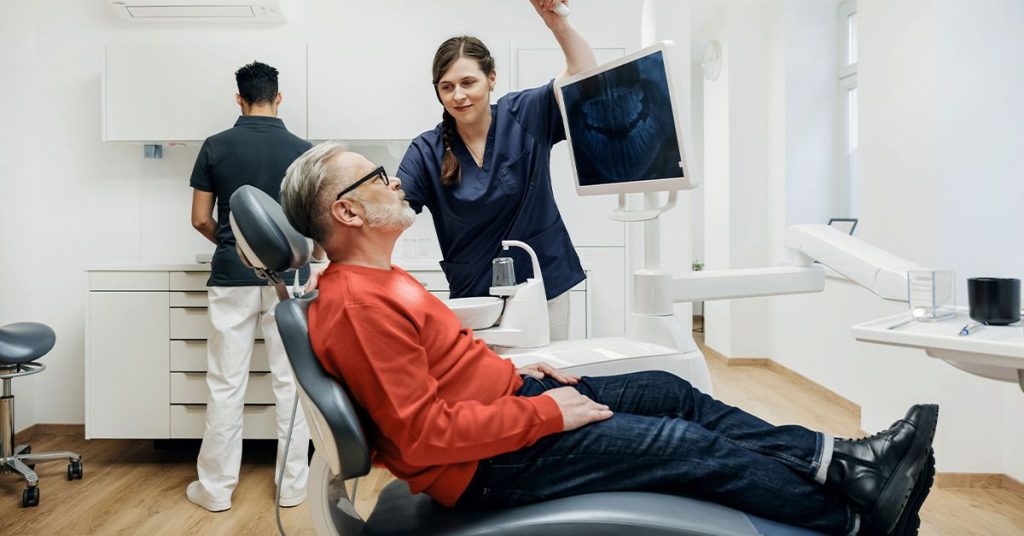Researchers are currently studying the potential for a simple oral rinse to help detect stomach cancer early, as the disease is often not caught until it is in its late stages and treatment options are limited. Initial findings suggest that an oral rinse could provide early detection of gastric cancer by analyzing bacterial samples from individuals with known gastric cancer, premalignant gastric conditions, and those without gastric health issues. The researchers found little difference in the microbiome between precancerous and cancerous groups, but distinct differences between these groups and the healthy control group, indicating that changes in the microbiome may occur early on in the development of gastric cancer. The researchers plan to conduct more extensive studies to verify the findings and ensure they are applicable to a broader population.
Dr. Anton Bilchik, a surgical oncologist, highlights the importance of this research, as there are currently limited sensitive methods available to detect gastric cancer or precancerous lesions outside of invasive endoscopy. He notes that the study’s focus on the microbiome and the potential for oral bacteria to serve as a biomarker for gastric cancer risk could lead to non-invasive screening methods for at-risk populations. Dr. Elliot Newman, a chief of surgical oncology, also views the research as promising but emphasizes the need for further extensive studies to confirm the findings and their long-term implications. The idea behind the oral rinse is that it could potentially detect changes in the stomach that may be precancerous, allowing for early intervention and treatment.
Stomach cancer, also known as gastric cancer, arises from the cells lining the stomach and includes various types, with adenocarcinoma being the most common form. The disease often goes undetected until it has progressed to an advanced stage or metastasized beyond the stomach. Symptoms of stomach cancer may not be obvious in many cases, but can include abdominal pain, unintentional weight loss, loss of appetite, and fatigue. Treatment options for stomach cancer typically involve a combination of therapies, such as surgery, chemotherapy, and radiation therapy, tailored to the individual’s specific circumstances including the tumor location, stage, age, overall health, and personal preferences.
Early detection of stomach cancer is crucial for improving survival rates, with a five-year survival rate of 75% when the cancer is contained within the stomach but dropping to 35% when it has spread beyond the stomach. If the cancer has metastasized to distant areas of the body, the five-year survival rate is only 7%. Given the slow progression of gastric cancer, which can take years to develop, the potential for an oral rinse to identify precancerous changes offers a promising opportunity for early intervention and improved outcomes. This non-invasive method could allow for routine screening of individuals at risk for developing gastric cancer, potentially leading to earlier detection and treatment initiation.
The study presented at Digestive Disease Week 2024 focused on analyzing bacterial samples to identify differences in the microbiome of individuals with gastric cancer, premalignant conditions, and those without gastric health issues. The researchers’ findings highlight the potential of oral bacteria as biomarkers for gastric cancer risk, paving the way for future research into non-invasive screening methods. While the results are promising, further validation through larger studies is necessary to ensure the generalizability and reliability of the findings across diverse populations. By detecting gastric cancer in its early stages through a simple oral rinse, individuals may have a better chance of successful treatment and improved long-term outcomes, underscoring the importance of innovative research in cancer detection and prevention strategies.













